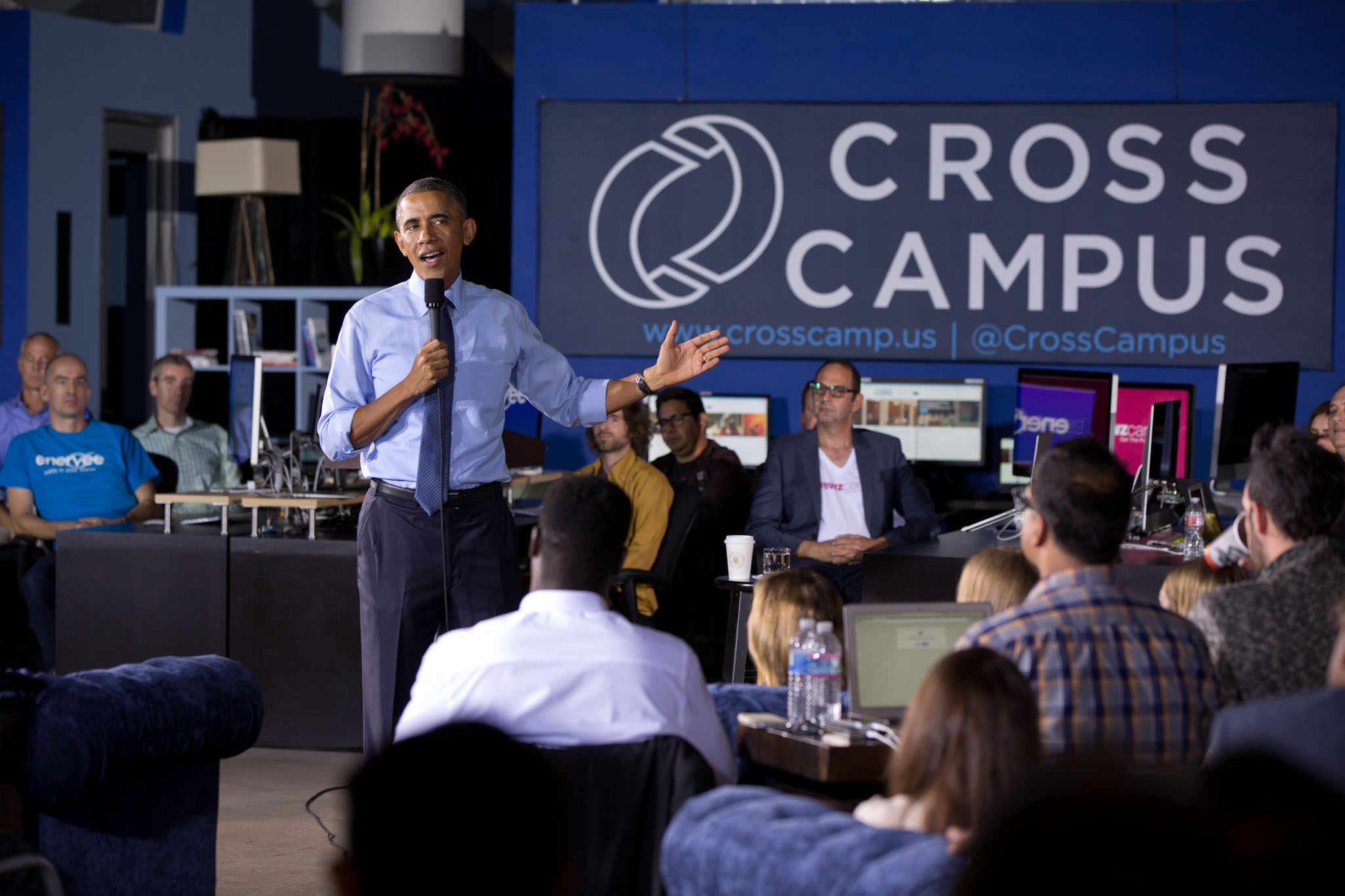
For Millennials, the entrepreneurial spirit is in their DNA. This week, the White House released a snapshot on what the economy looks like for the Millennial generation right now, and how this rising group of young Americans will use its unparalleled talent and drive to shape the economy in the next few years.
Yesterday in Los Angeles, President Obama spent some time with a few innovative members of the Millennial generation at Cross Campus -- a collaborative tech lab that brings inventors and investors together to pursue the next big idea that will continue to power our economic recovery.
"A lot of you entered the workforce during the worst recession since the Great Depression. And that makes it easy for cynics to write you off as some kind of 'lost generation,'" he said. "But I don’t buy that. Because when I travel around the country, I see the kind of energy, hope, and determination that you display here…"
"When I come to places like this, it inspires me and reminds me of why I am chronically optimistic about the future of America."
For all the challenges that this generations faces, the President pointed out that there’s good reason for hope:
Over the past 55 months, we’ve added about 10.3 million new jobs across America. And what we’ve seen is the longest uninterrupted stretch of private sector job growth in our history. And that’s why, for the first time in more than six years, the unemployment rate has now dropped below 6 percent. And today, we’re on pace for the strongest job growth since the 1990s. Interesting statistic. All told, over these last six years, the United States has put more people back to work than Japan, Europe, and every advanced economy combined, which gives us a sense of the kind of momentum that we could be building.
From doubling our production of clean energy to producing more cars to bringing more companies and jobs back to our shores, "there's a lot of good stuff happening," he said.
We’re coming out of this recession with the best-educated, the most diverse, the most digitally fluent generation of adults in American history. And we also have, as I said before, a shift where more women are now getting college degrees, getting higher degrees, and that’s part of what’s closing not only the pay gap but also the entrepreneurship gap all across the country.
"What we’re seeing here is the way that technology is changing not just how you do business, not just how you buy products, but also how you interact, how you organize politically, how you get involved in the community and how you solve problems. And all of that can support millions of new jobs."
But the President made clear that we can do better, especialy in helping improve wages for hardworking Americans. "The gains in the economy, not just over the last six years but really over the last 20, have more and more been going to the top of the economic pyramid," he said, while "the average middle-class person who's working to get into the middle class, they have not seen any meaningful increase in their wages and incomes."
There are things we could do right now -- increasing the minimum wage, which hasn’t increased in seven years. Making sure that fair pay laws are strong enough so that women are no longer making 77 cents for every dollar that a man is making. Making sure that we’re investing in infrastructure -- not just roads and bridges, but a smart grid to make sure that we’re -- our entire system is using energy more efficiently. Making sure that we are in the next generation of broadband and wireless so that there’s penetration not just in a place like Los Angeles, but in small rural communities that right now still feel excluded from this revolution that’s taking place.
Fixing up our airports -- if we changed our air traffic control system, it’s estimated that the airlines could save 30 percent on their fuel costs, just because they wouldn’t be circling -- and by the way, they’d be cutting time on delays, which means that customers get better service, ticket prices would be lower, and you wouldn’t be stuck paying exorbitant amounts of money for food at the kiosk that you really don’t need anyway.
"The only reason we’re not doing it right now is because we’ve got a Congress that has been spending a little bit too much time worrying about the next election and not enough time worrying about the next generation," the President said.
The good news is, is that despite some of the gridlock in Washington, we’re making progress. And when I come to places like this, it inspires me and reminds me of why I am chronically optimistic about the future of America.



